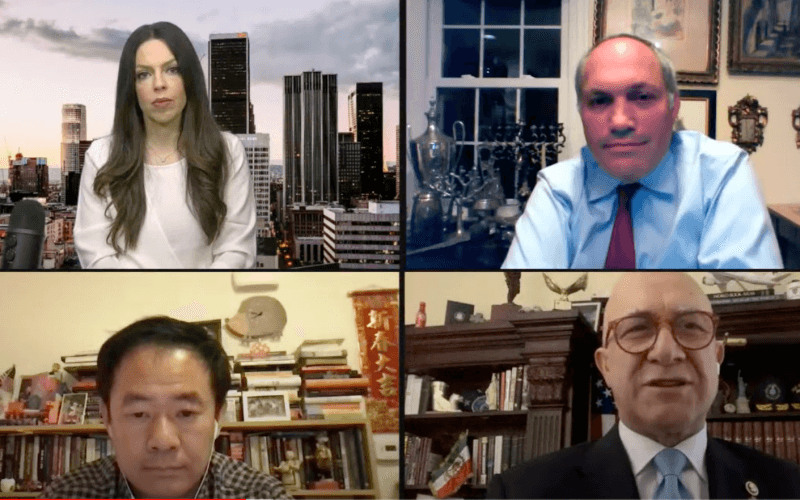The Biden administration continues to hand Iran critical diplomatic leverage amidst ongoing talks to revive the 2015 nuclear deal, former Iranian hostage Xiyue Wang, American Enterprise Resident Scholar Michael Rubin, and former United States official Bijan Kian discussed on The Foreign Desk Foreign Policy Power Panel with Lisa Daftari Monday.
“I think we are giving [Iran] leverage that they don’t deserve,” said Wang, who sees Biden’s open determination to reenter the deal as an obstacle for protecting U.S. interests.
“You put yourself in Mr. Khamenei’s shoes, what are you going to do…you’re going to jack up everything, all the demands that you have,” Wang continued.
The current U.S. policy towards Iran also treats reformers inside Iran as a more hopeful prospect for behavioral change in Iran than they are in reality, which Rubin believes greatly influences the administration’s appeasement policy.
“The reason for this [appeasement] is…that we really believe reformers are sincerely interested in reform,” said Rubin in reference to the Biden administration, “They’re interested in a change of style but not in a change of substance.”
The Biden administration’s determination to revive the original nuclear deal directly ignores the interests of Saudi Arabia, Israel, and the UAE, key U.S. allies in the region; although Kian is confident that “the state of Israel is going to do what the state of Israel needs to do to protect the people of Israel.”
Wang points out that China may also be taking advantage of the Biden administration’s weak Iran policy.
In March, China and Iran signed a 25-year cooperation agreement supposedly worth $400 billion that has been stalled for years due to China’s unwillingness to sign onto the deal in the past.
China “waited to see who was going to win the U.S. election” and “how that was going to shift” U.S. policy towards Iran, according to Wang.
Wang believes it is likely that the actual Iran-China agreement will itself be unsubstantial and is perhaps being blown out of proportion as a strategy by the Biden administration to garner public support for reentering the nuclear deal more rapidly.
Rubin supports this assertion, saying “it doesn’t look like the Chinese are as serious about Iran as perhaps some of the public relations surrounding the Biden administration are suggesting they are.”
Whether or not the China-Iran deal is of consequence in the present, Wang foresees the potential for serious consequences in the future if the Biden administration relieves sanctions on Iran and allows for Chinese influence to spread in the region.
“This is a recipe for a future problem because we’re creating a conducive environment for China to entrench further in Iran and then, guess what, once China does that, since we are already distending from our Middle Eastern allies, that will force our traditional allies to…work more closely with China in this context, and this is not in our interest,” said Wang.










